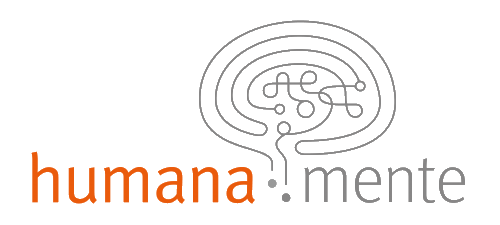Psycho-social interventions
There is currently no cure for dementia and in addition to medication, non-pharmaceutical interventions are equally important. They can promote mental performance and daily living skills, mitigate behavioral disturbances and improve wellbeing.
We constantly review the latest research and resources to understand the most promising interventions, details of which you can find below. Use the contact form if you have any specific questions around non-pharmaceutical interventions and tools.
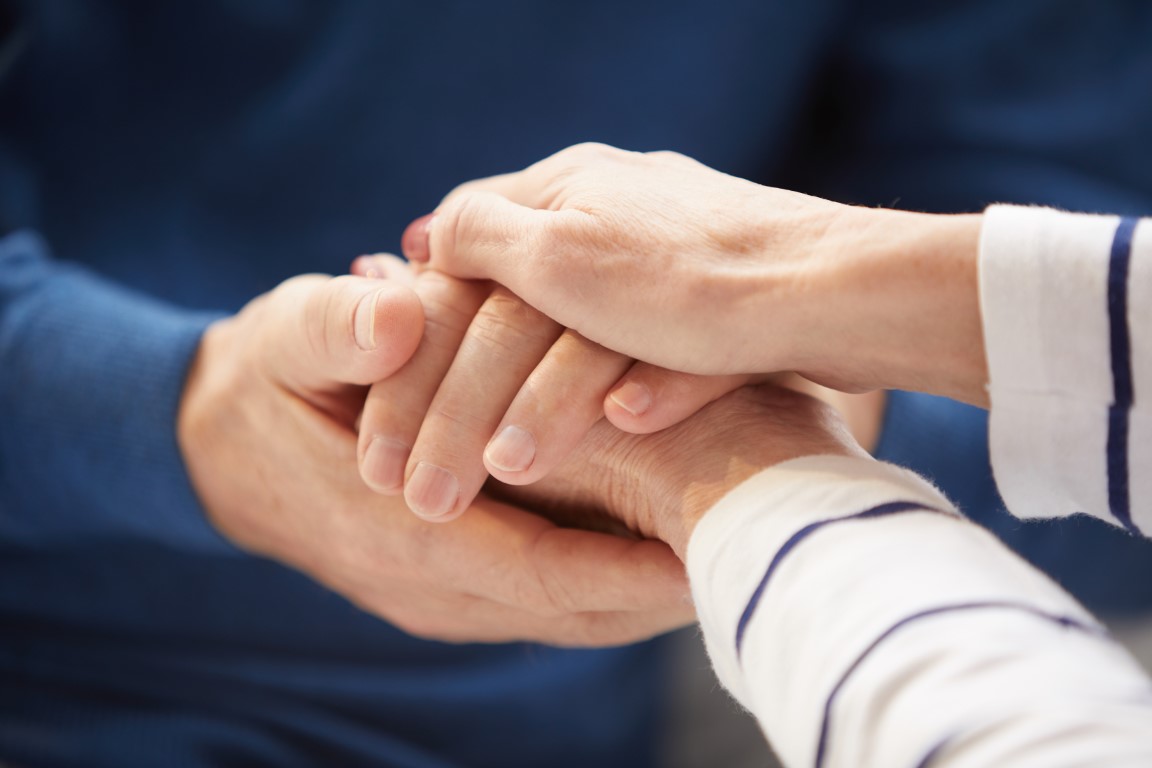
Person-centred approach
Food is a powerful tool to transform health and to promote healthy aging. You will find more information in the BLC farm section. For us, the most important research on nutrition and dementia has been done by Dr. Lisa Mosconi Director of the Weill Cornell Women Brain Initiative. Dr. Mosconi is not only a Neuroscientist and Neuro-Nutritionist but also the author of two amazing books, the XX brain and brain food. There is a lot of information available on dementia, nutrition and diet but for us the Mediterranean diet is the best and easiest to follow and extensive research points to its positive impact. In addition to Dr. Mosconi´s books, we can also highly recommend the following books with amazing recipes.
https://www.bluezones.com/recipes/
https://newmediketo.com/dr-nicholas-norwitz/
Watch Sabine’s short movie on bread baking on her YouTube channel. Subscribe to the BLC YouTube channel if you want to keep up to take on BLC info and edu-tainment.
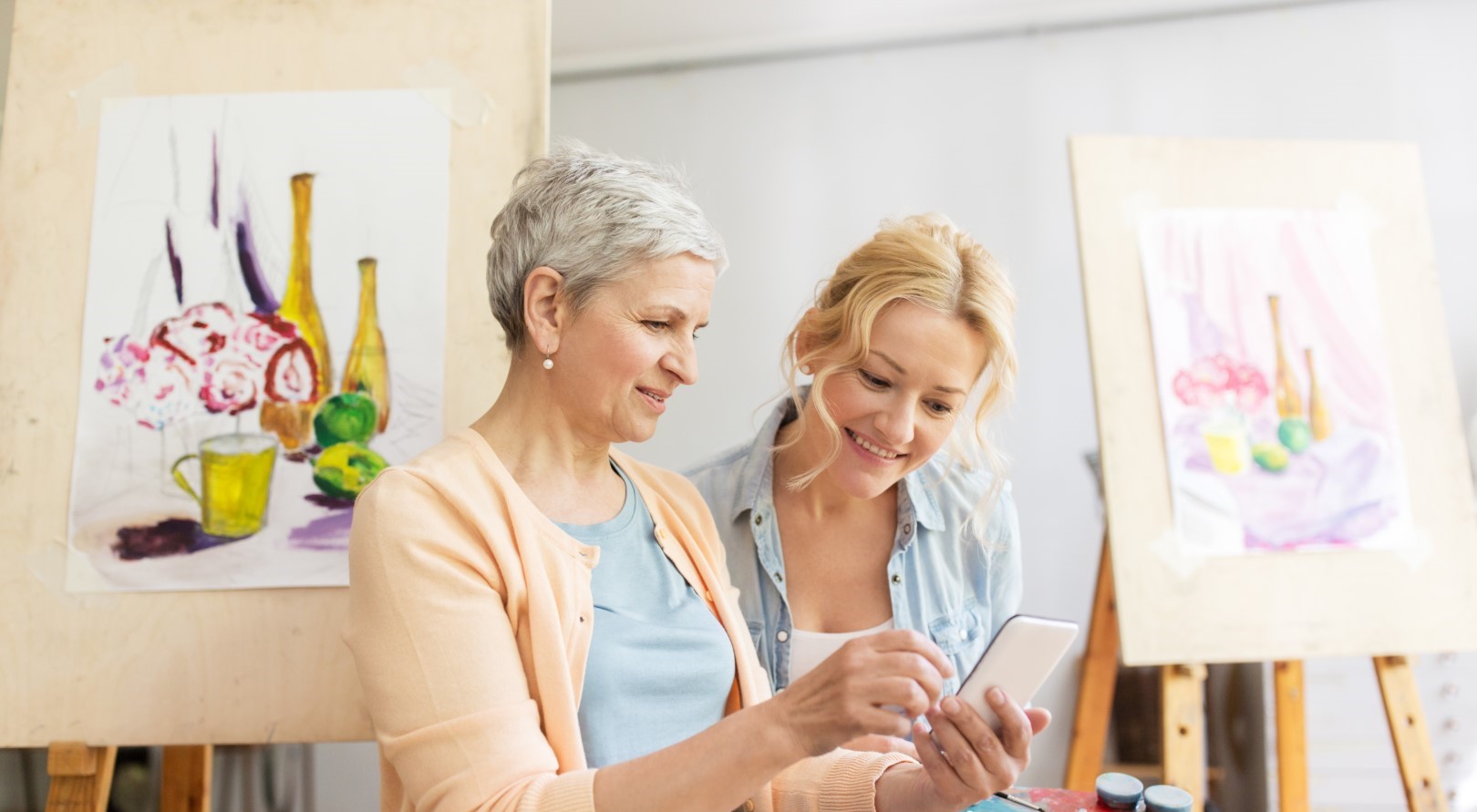
Art Therapy
Research suggests that artistic engagement may help to ease common behavioral symptoms of dementia like anxiety, agitation and depression. It may also boost mood and self-esteem, and possibly help stimulate memory. Doctors and researchers are not exactly sure why creative expression remains intact in people living with dementia but art therapy can be extremely beneficial and rewarding for patients and by having a beneficial effect on those with dementia, caregivers may find relief as well.
Sabine, the BLC founder was touched by Dr. Daniel C. Potts story who founded Cognitive Dynamics after his father Lester Potts death in 2007. Lester, a rural Alabama saw miller, became a renowned watercolor artist while living with Alzheimer’s disease, despite having never shown any artistic talent prior to its onset.
There have also been other projects about the engagement with art which can also have significant benefits for people with dementia and their caregivers. The Museum of Modern Art (MoMA) had the MoMa Alzheimer's Project to make art accessible to people living with dementia.
The ARTEMIS (ART Encounters: Museum Intervention Study) is an art-based intervention designed especially for people with dementia and their care partners that involves a combination of museum visits and artistic activity. The results showed that art museum-based art interventions are able to improve the subjective wellbeing, mood, and quality of life in people with dementia.
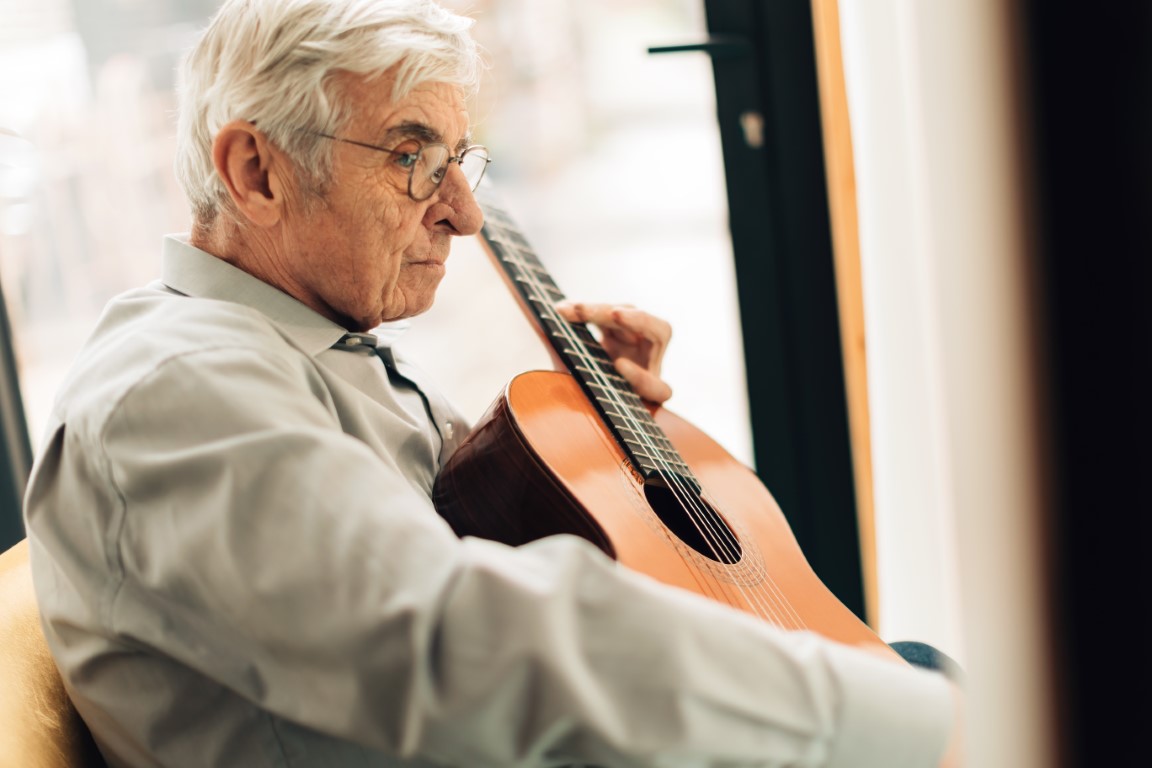
Music Therapy
Dr. Oliver Sacks was a physician, best-selling author, and professor of neurology and he wrote in his book 'Musicophilia - Tales of Music and the Brain' (2007) that someone with Alzheimer's may undergo a regression to a ¨second childhood¨, but aspects of one’s essential character, of personality and personhood, of self, survive - along with certain, almost indestructible forms of memory - even in very advanced dementia. In people living with dementia Music Therapy aims to address the emotions, cognitive powers, thoughts, and memories to give freedom, stability, organization, and focus.
Dr. Concetta Tomaino, Executive Director and co-founder of the Institute for Music and Neurologic Function (IMNF) stated in an interview with beingpatient.com that Music Therapy allows people to be creative and expressive and to build short-term memory skills. Songs can be found which help connect people living with dementia and their loved ones. Music may also be used as a mnemonic tool, creating a little melody or rhythmic pattern to help somebody recall and memorize their phone number or address.
For Sabine, the BLC founder, watching the movie 'Alive Inside' was eye opening since it clearly shows the benefits of music in people living with dementia and since Sabine plays the guitar she experiences the positive effect of music firsthand.
The following movie shows a song which Sabine played for people living with dementia on World Alzheimer's Disease in 2020 as a part of a fundraising campaign. Subscribe to Sabine’s YouTube channel to stay up to date on info and edutainment on Dementia.
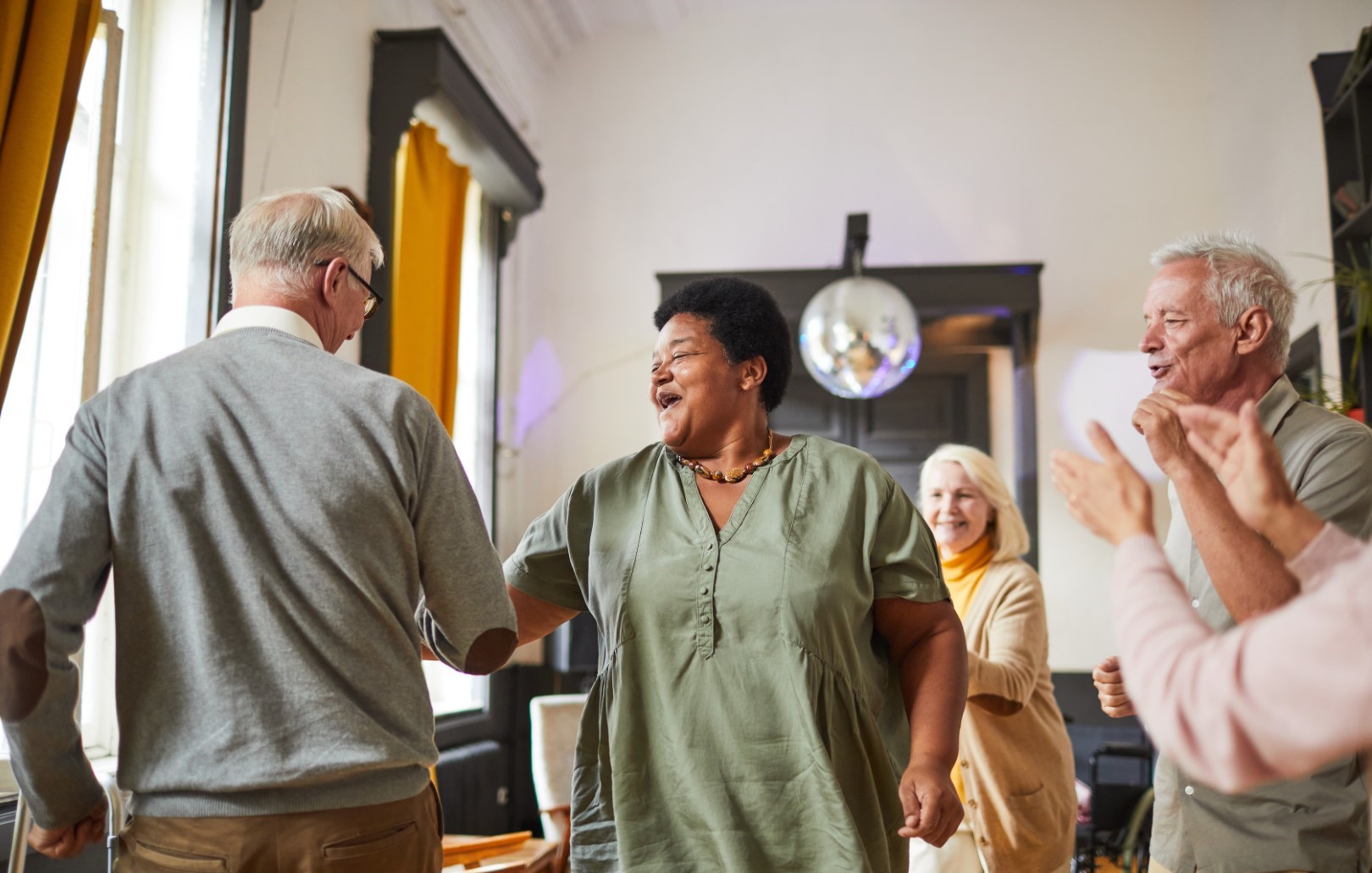
Tango Therapy
The best known approach studied on a scientific level is the use of Tango for Parkinson's disease, but because of the multiple benefits that this dance has, it is used worldwide in institutions and hospitals to address other diseases including Alzheimer’s. It is a coordination activity that forces the patient to exercise his memory to remember the steps. Tango not only heals the body, but it is also good for the mind.
Besides Tango, dance/movement therapy has been shown to be effective in people living with Alzheimer´s since it stimulates social interaction, enhances mood, reduces anxiety and depressive symptoms and increases self-awareness and self-expression.
Clinical trials studying Tango Therapy for dementia patients and caregivers will be completed in 2022. Watch the following movie from the Spanish-based organization Musica para Despertar which shows the power of music and dance and prima ballerina Marta C. González who lives with Alzheimer’s but is able to recall an old choreography.
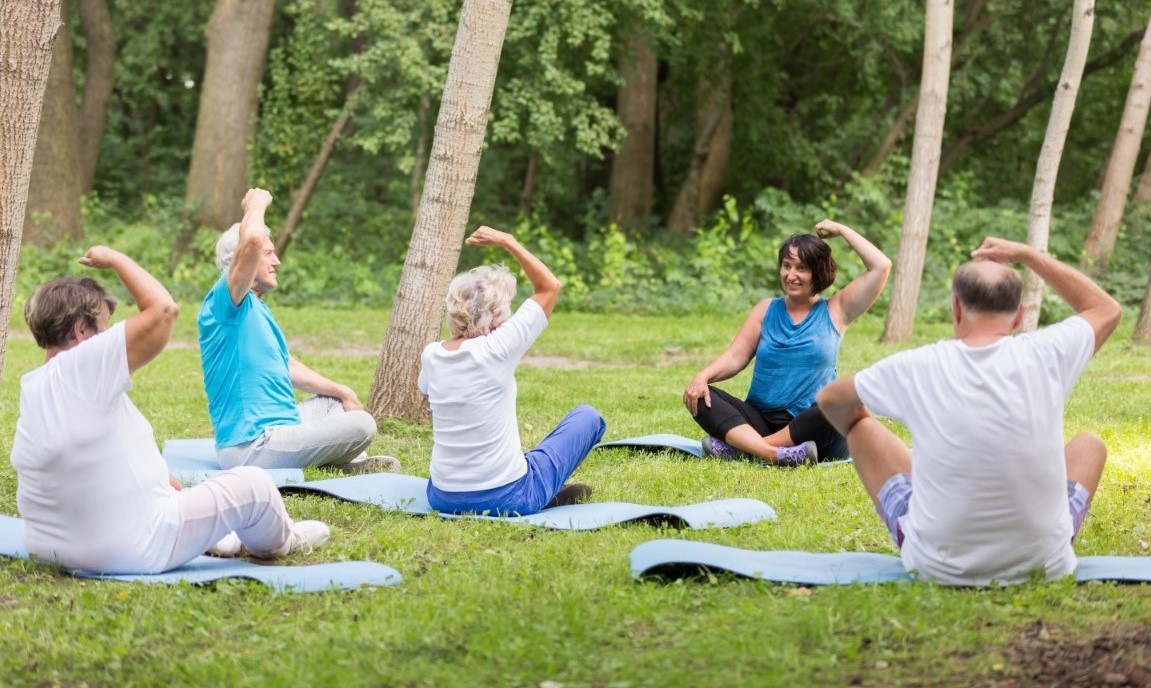
Exercise
VR therapy has been proven to have a positive impact on residents emotional state. It is a cost effective and fun way of broadening their horizons and improving Quality of Life within the home. Research conducted in the UK has led to VR being used as a non pharmaceutical way of increasing the general well being of residents living with dementia. The benefit is residents feel better through sharing experiences with friends, they have an oppotunity to enjoy some time by themselves out of the high stimulus environment of the home, they are engaged as it sparks discussions/improves relationships with caregivers, and meaningful VR environments help residents recall old memories (reminiscence).
BLC is partnering with Recreo VR
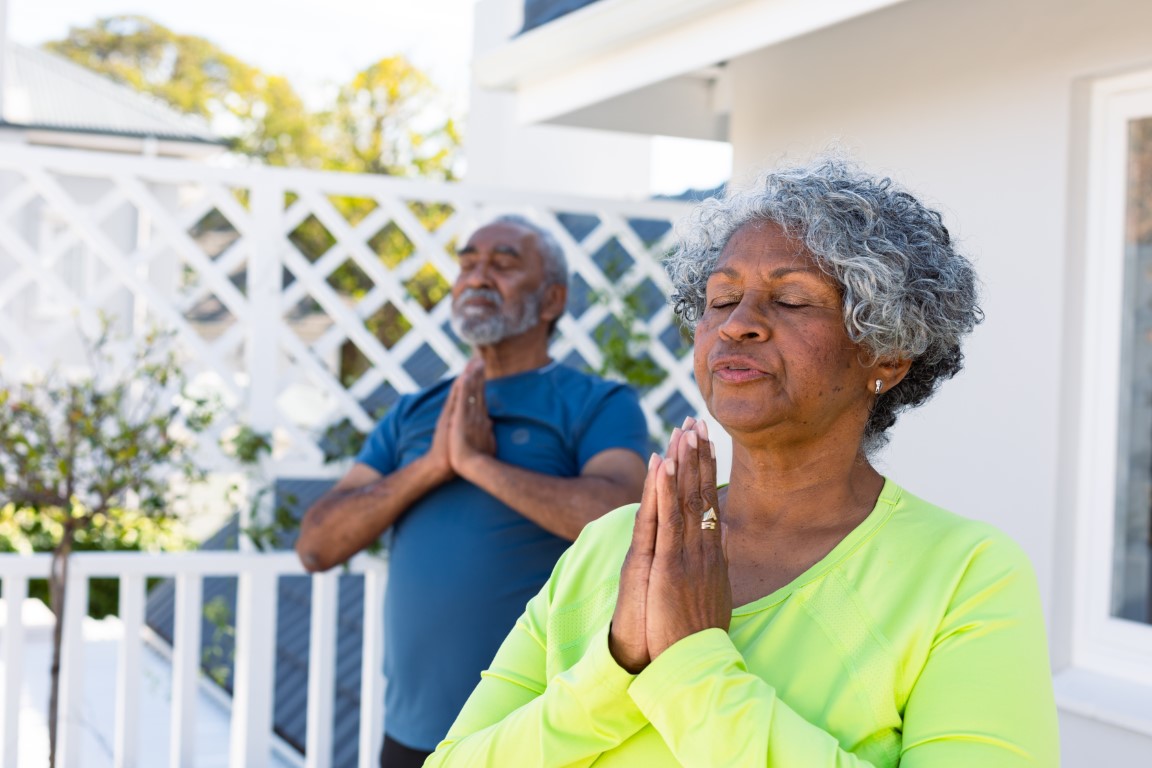
Yoga
Yoga, with its roots in ancient Indian philosophy, is used for physical, mental and spiritual well-being. Yoga as therapy uses physical postures (āsanas), breathing exercises (Prāṇāyāma) and meditation techniques. Independently and/or comprehensively these have been shown to improve several cognitive functions such as executive functions, attention, intelligence, memory and concentration. Research has also shown that practice of simple mind-body therapies improves cognitive function, sleep, mood.





